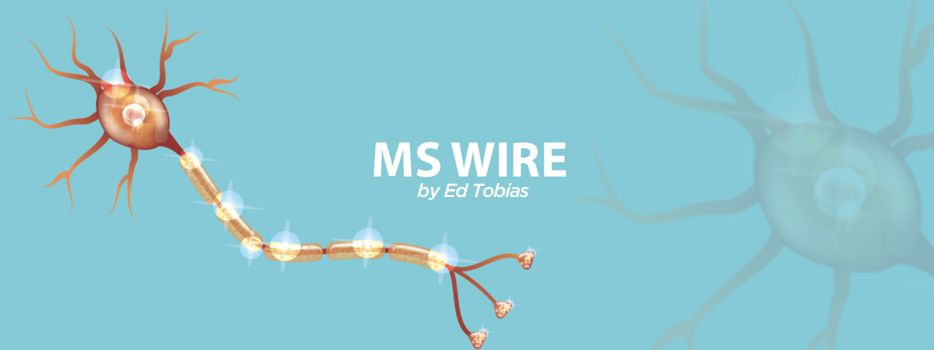MS News That Caught My Eye Last Week: Age and DMTs, Tysabri or Gilenya, Sativex Trial, Ocrevus and Mayzent

Phase 3 Trial of Sativex, Cannabis Extract Treatment for MS Spasticity, Opens in US
This is a major step toward making a clinically tested, cannabis-based medication available in the U.S. I’ve always thought that medications containing a THC/CBD combination are useful to lessen some MS symptoms, but the lack of a quality standard and acceptance by insurance plans have been hurdles for me. It would be wonderful to have those obstacles removed.
A Phase 3 trial is underway in the U.S. to assess the safety and efficacy of Sativex (nabiximols), an oral spray that contains cannabis extracts, in treating spasticity — muscle stiffness or spasms — associated with multiple sclerosis (MS).
Sativex, by GW Pharmaceuticals, is available in 25 countries — including most of Europe and Canada — as an add-on therapy for MS patients with moderate-to-severe spasticity who fail to respond to other anti-spastic treatments. It contains cannabidiol (CBD) and tetrahydrocannabinol (THC), two of the most abundant cannabinoids found in the cannabis plant.
Click here to read the full story.
***
Study Flags Possible DMT Risk for MS Patients Over Age 45
I’ve been treated with a disease-modifying therapy (DMT) since 1996, when I was 48 years old. For nearly three decades, I’ve used four of them, and each has had its own risks. But my neurologist and I felt that in each case, the benefits outweighed the risks. I hope this study isn’t used as ammunition by those who believe that people with MS over a certain age should not be treated with DMTs.
The use of disease-modifying therapies (DMTs) in adults with multiple sclerosis (MS) increased the risk of precancerous growth in those older than 45 years of age, according to an age-related adverse events analysis of several dozen clinical trials.
In contrast, age did not affect infection rates in MS patients using DMTs.
Click here to read the full story.
***
Tysabri Seen as Superior to Gilenya for RRMS in Limited, Head-to-head Study
This study was indeed limited, running less than six months. And it was sponsored by Tysabri manufacturer Biogen. However, it may weigh in during the decision-making process of someone considering starting, or switching to, one of these DMTs. So, it’s worth a read.
Adults with active relapsing-remitting multiple sclerosis (RRMS) treated with Tysabri (natalizumab) had fewer new and accumulated lesions, and a lower relapse rate than those treated with Gilenya (fingolimod) for 24 weeks, according to an analysis of data in a Phase 4 head-to-head trial of these therapies.
These findings were part of the study’s secondary goals. REVEAL was terminated early after enrolling less than one-quarter of its 540 intended patient group, and its primary objective could not be analyzed.
Click here to read the full story.
***
Ocrevus Still Reigns for Progressive MS, Spherix Reports, But Challenges Noted
Ocrevus may be the flavor du jour of many neurologists for treating progressive forms of MS, but there’s a new sheriff in town: Mayzent. And Mayzent is a pill, while Ocrevus is an infusion. That could make Mayzent a lot more popular with many PwMS.
Genentech’s Ocrevus (ocrelizumab) continues to be the most prescribed treatment for people with progressive forms of multiple sclerosis (MS) among U.S. neurologists, according to the latest Spherix Global Insights’ report.
However, Novartis’ Mayzent (siponimod) “is beginning to close the gap” with Ocrevus among those with active secondary progressive MS (SPMS), a Spherix press release summarizing this report noted.
Click here to read the full story.
Be sure to check out our MS News Today Forums for discussions about some of these reports.
***
Note: Multiple Sclerosis News Today is strictly a news and information website about the disease. It does not provide medical advice, diagnosis, or treatment. This content is not intended to be a substitute for professional medical advice, diagnosis, or treatment. Always seek the advice of your physician or other qualified health provider with any questions you may have regarding a medical condition. Never disregard professional medical advice or delay in seeking it because of something you have read on this website. The opinions expressed in this column are not those of Multiple Sclerosis News Today or its parent company, Bionews, and are intended to spark discussion about issues pertaining to multiple sclerosis.







Leave a comment
Fill in the required fields to post. Your email address will not be published.